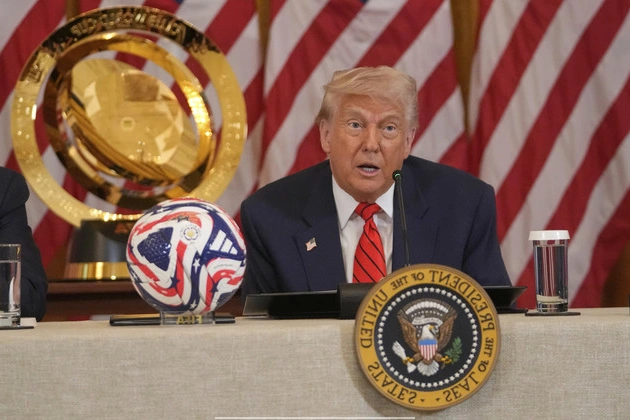
President Donald Trump’s fervor to co-host the 2026 World Cup collides with an assertive America First foreign policy in his second term. The anticipation is palpable as preparations intensify for the month-long global extravaganza alongside Canada and Mexico.
Trump’s recent tariffs and immigration crackdown have raised concerns about handling the influx of fans visiting the U.S. for the event. Despite strained relations, Trump views tensions positively, believing they will enhance the excitement of the tournament.
The Grand Logistics
The U.S. leg of the 2026 tournament spans 11 cities, hosting over half of the anticipated 104 matches. This logistical feat, likened to ‘three Super Bowls a day for a month’ by FIFA President Gianni Infantino and Trump, poses significant challenges.
Planning for the event accelerated with the launch of Trump’s World Cup task force, signaling a shift in focus. Coordination between federal agencies, host cities, and FIFA has intensified to ensure a successful hosting experience.
Strategic Task Force
Trump’s task force, led by Andrew Giuliani and Phil Hegseth, is actively engaging with stakeholders to orchestrate a memorable event. Deputy chief of staff Nick Luna spearheads FIFA coordination, aligning preparations for various iconic projects.
A workshop held with foreign embassies outlined security protocols, emphasizing the need for seamless coordination and visa processing. Managing millions of international spectators navigating between countries poses a unique pre-tournament challenge.
Ensuring Safety and Success
The task force aims to collaborate with law enforcement to guarantee fan safety and city security during the games. DHS Secretary Kristi Noem underscores the importance of showcasing American excellence while ensuring a secure environment.
Host city executives have requested $625 million from Congress to cover security costs, demonstrating the collective commitment to a successful and safe event. Incident command centers will be established in all host cities to streamline coordination and response efforts.
Global Leadership Projection
Officials across party lines see the 2026 World Cup as an opportunity to exhibit global leadership and highlight their cities’ offerings. Hosting this prestigious event allows cities like Seattle and Kansas City to accelerate infrastructure projects and enhance visitor experiences.
The 2026 World Cup promises a unique platform to showcase American greatness on the global stage. As preparations intensify, the collision between America First policies and global sports diplomacy adds an intriguing dimension to the upcoming event.











